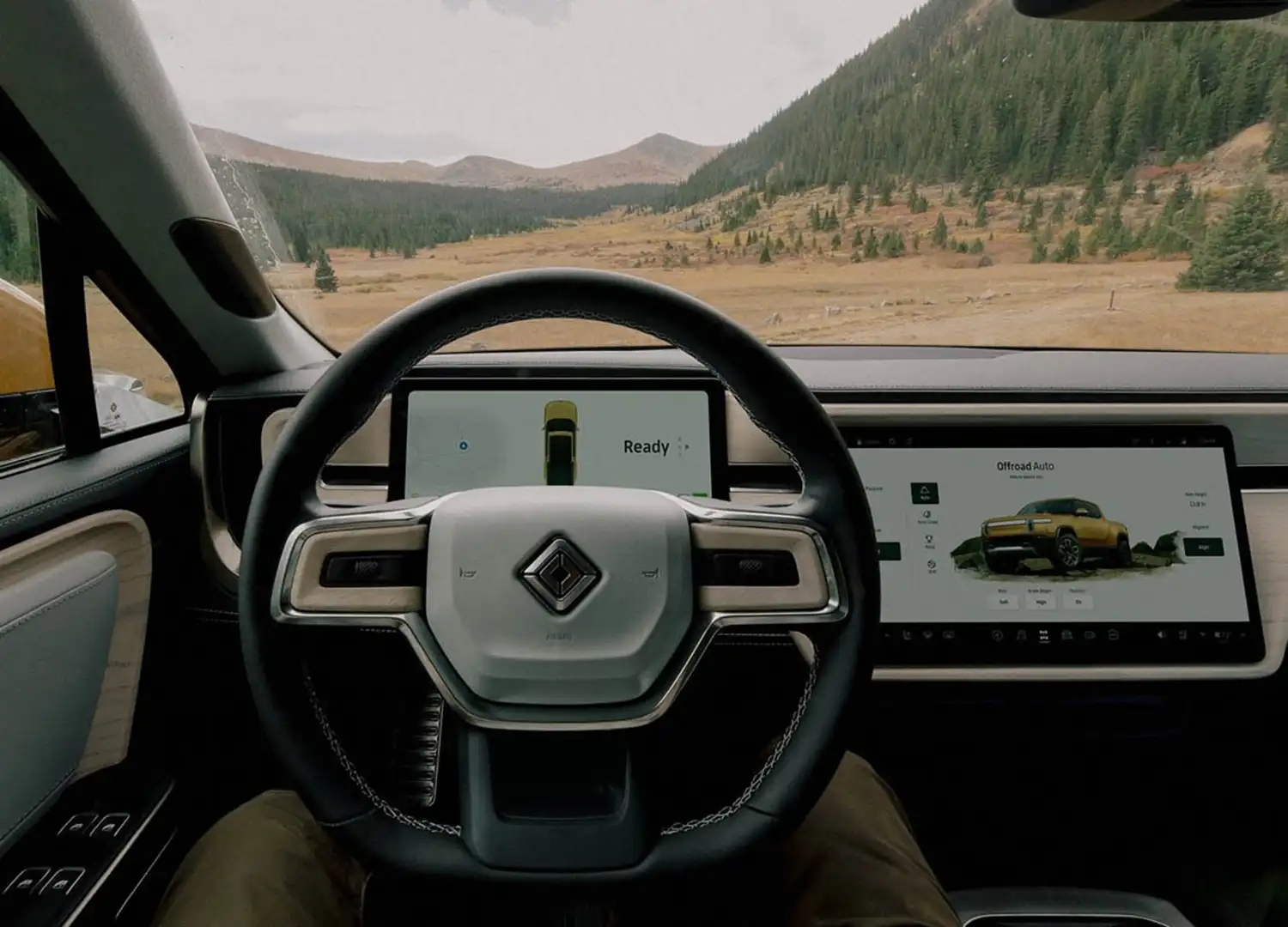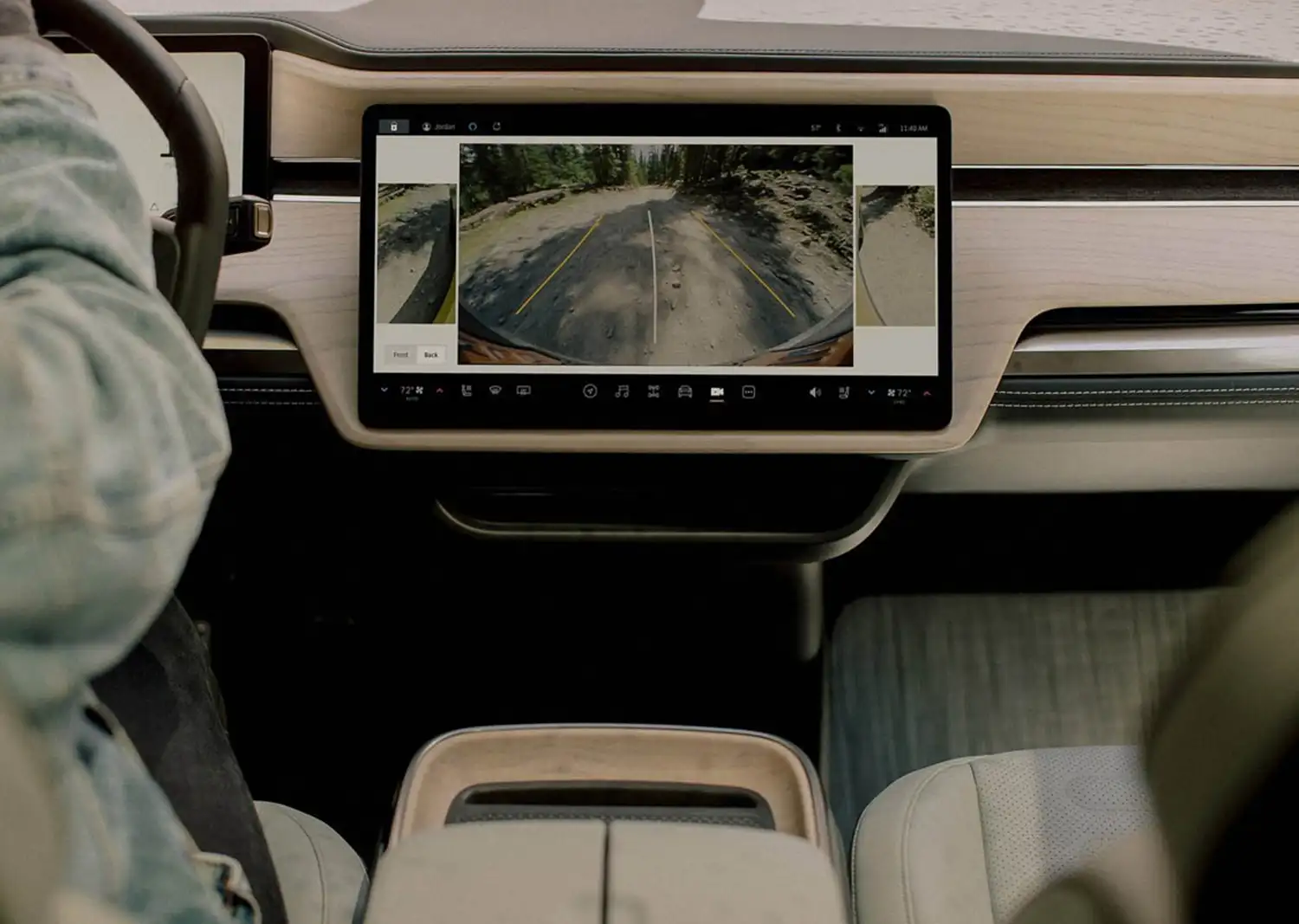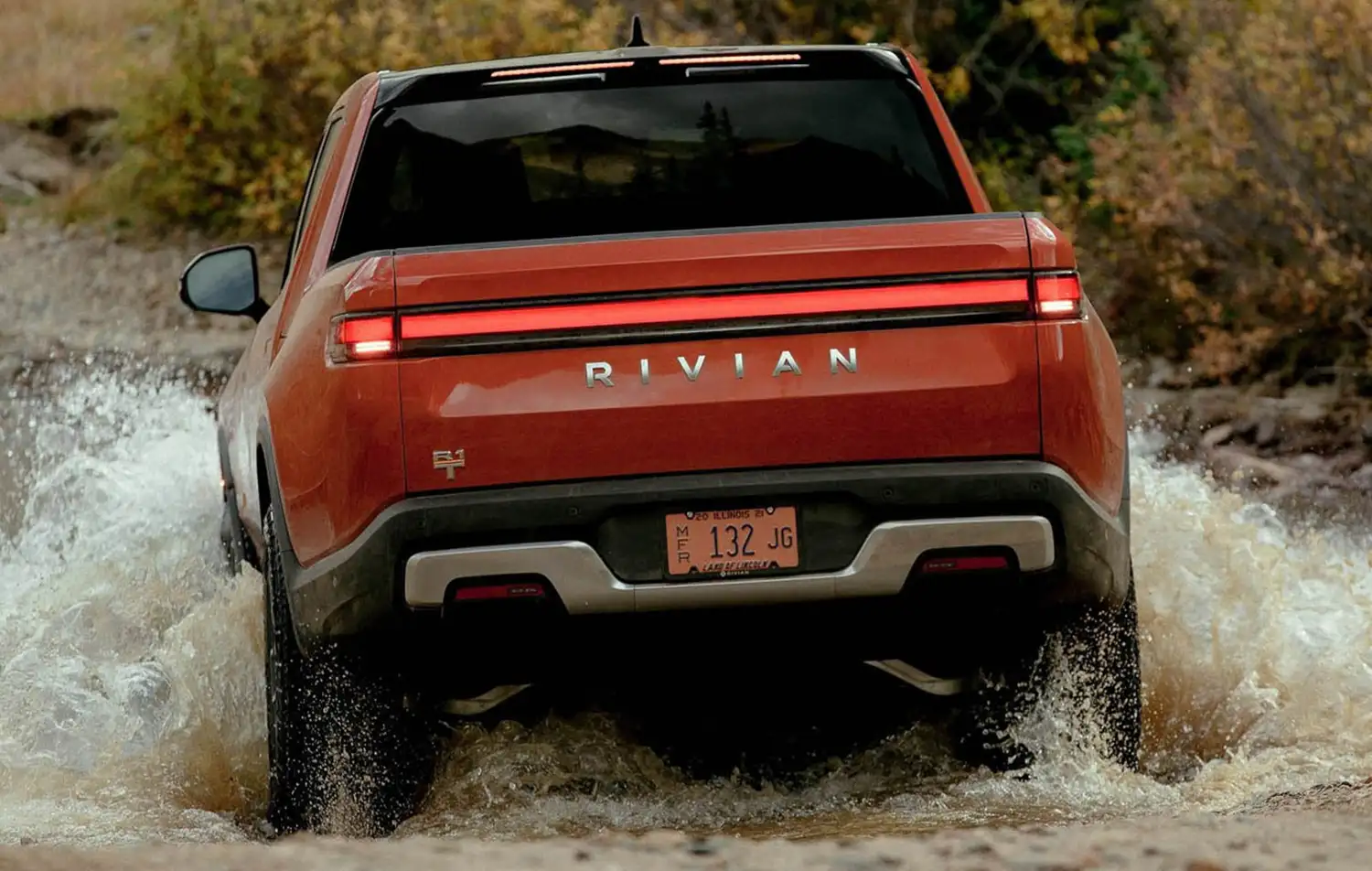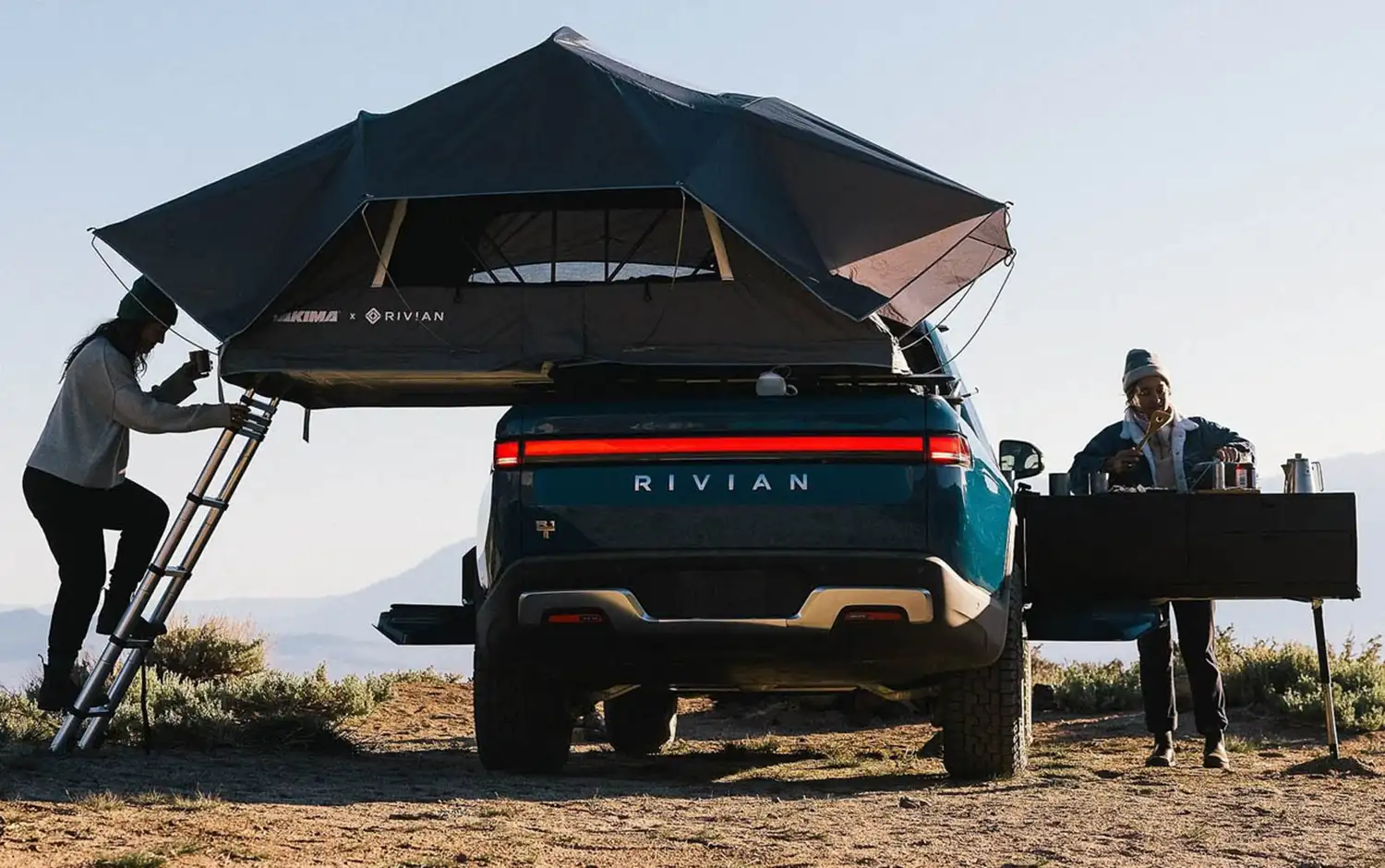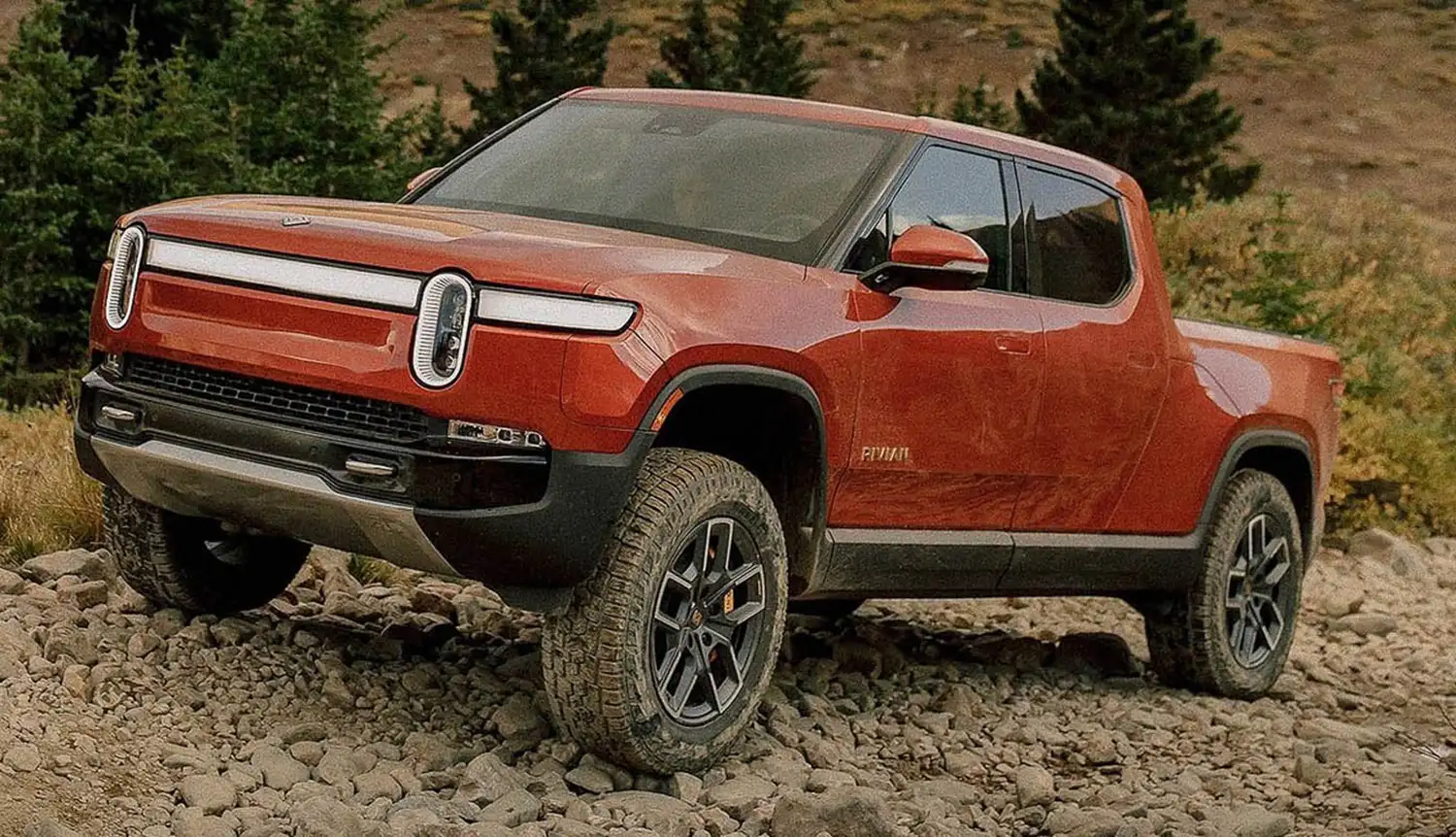
Rivian, an electric vehicle manufacturer, unveiled its highly anticipated Electric Adventure Vehicles – the R1T, an all-electric pickup and the R1S, an all-electric SUV – at events surrounding the 2018 LA Auto Show.
The R1T, a 5-passenger pickup truck, and the R1S, a 7-passenger SUV, have up to 400+ miles in electric range, a wading depth of 1 meter, lockable storage bins that can fit the bulkiest of gear, and the performance and precise control of quad-motor AWD, Rivian vehicles have been developed to help customers get out and explore the world. Both vehicles will be produced at Rivian’s manufacturing facility in Normal IL.
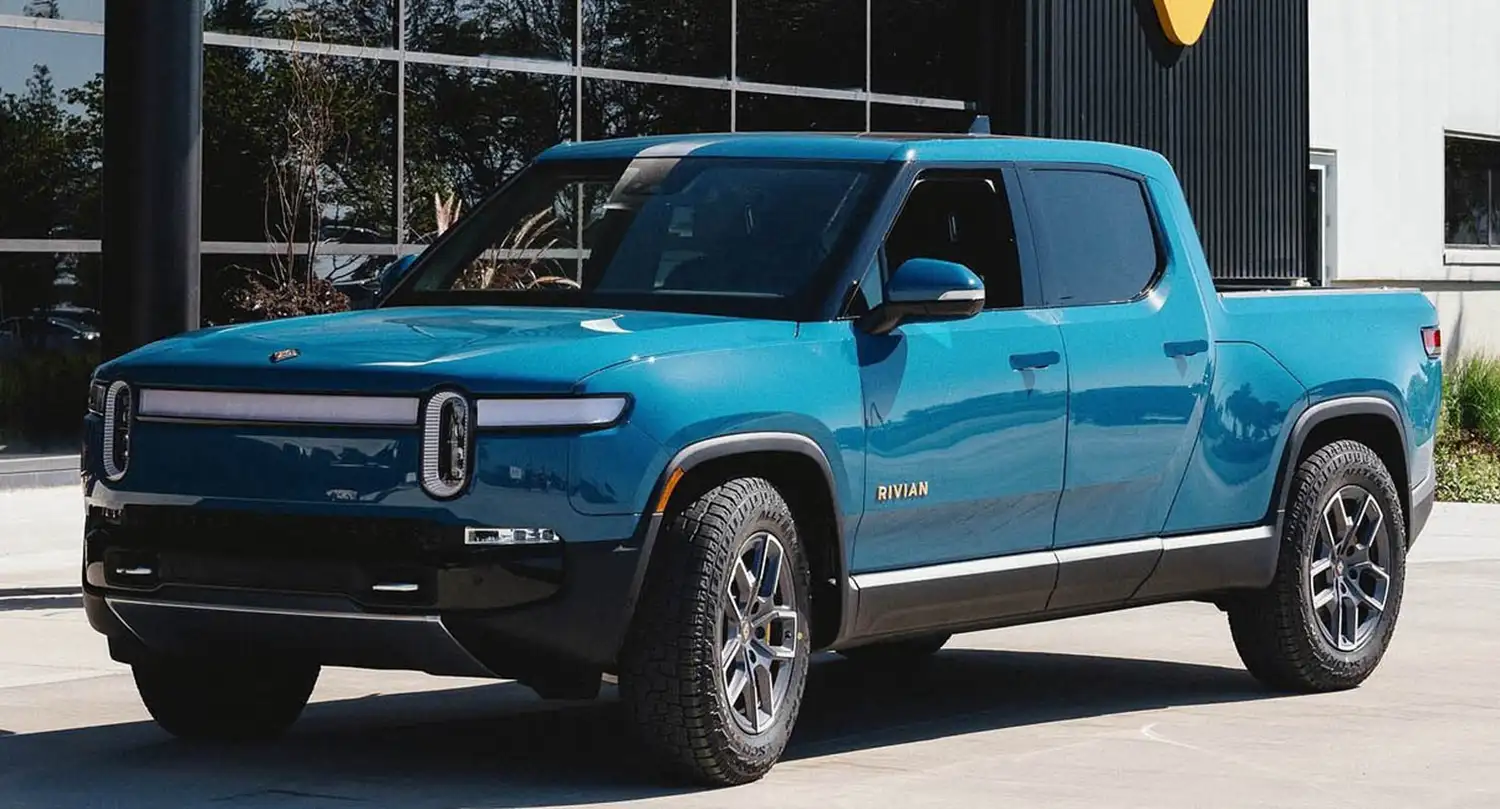
“We’re launching Rivian with two vehicles that reimagine the pickup and SUV segments,” said Rivian Founder and CEO RJ Scaringe. “I started Rivian to deliver products that the world didn’t already have – to redefine expectations through the application of technology and innovation. Starting with a clean sheet, we have spent years developing the technology to deliver the ideal vehicle for active customers. This means having great driving dynamics on any surface on- or off-road, providing cargo solutions to easily store any type of gear, whether it’s a surf board or a fishing rod and, very importantly, being capable of driving long distances on a single charge. From the inside out, Rivian has developed its vehicles with adventurers at the core of every design and engineering decision. The R1T and R1S are the result of all this work and we are excited to finally introduce these products to the world.”
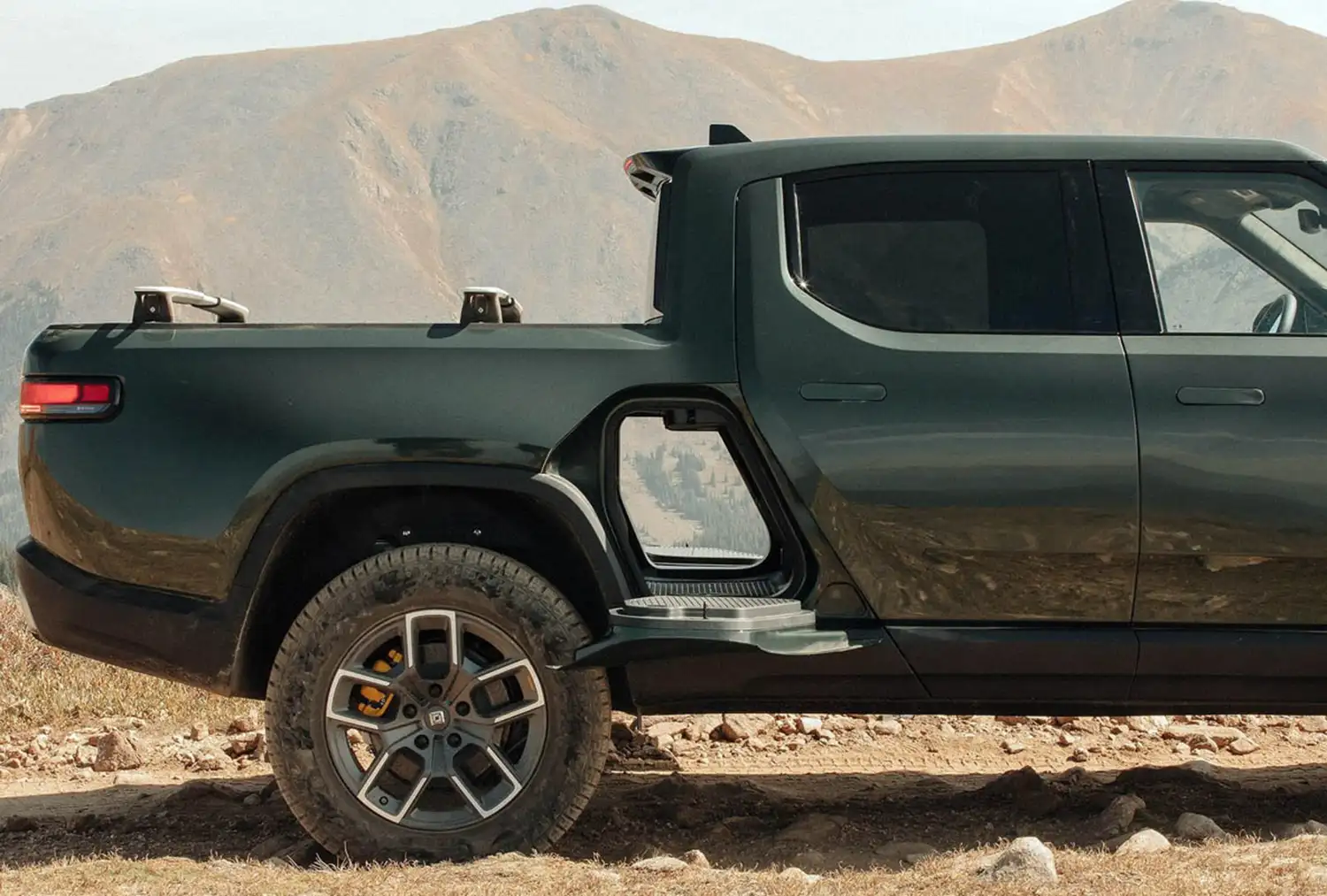
Skateboard Platform
The foundation of the R1T and R1S is Rivian’s skateboard platform, which efficiently packages the battery pack, drive units, suspension, braking and thermal system all below the height of the wheel, leaving the space above for occupants and their gear.
Beyond the packaging benefits, this architecture delivers a low center of gravity that supports the vehicle’s agility and stability. Adding to these inertial advantages is a sophisticated suspension architecture with unequal length double wishbone suspension in the front and a multi-link suspension in the rear. The suspension features dynamic roll control and adaptive dampers along with ride-height adjustable air-suspension – allowing the suspension to be adjusted for highway comfort, on-road performance or off-road capability.
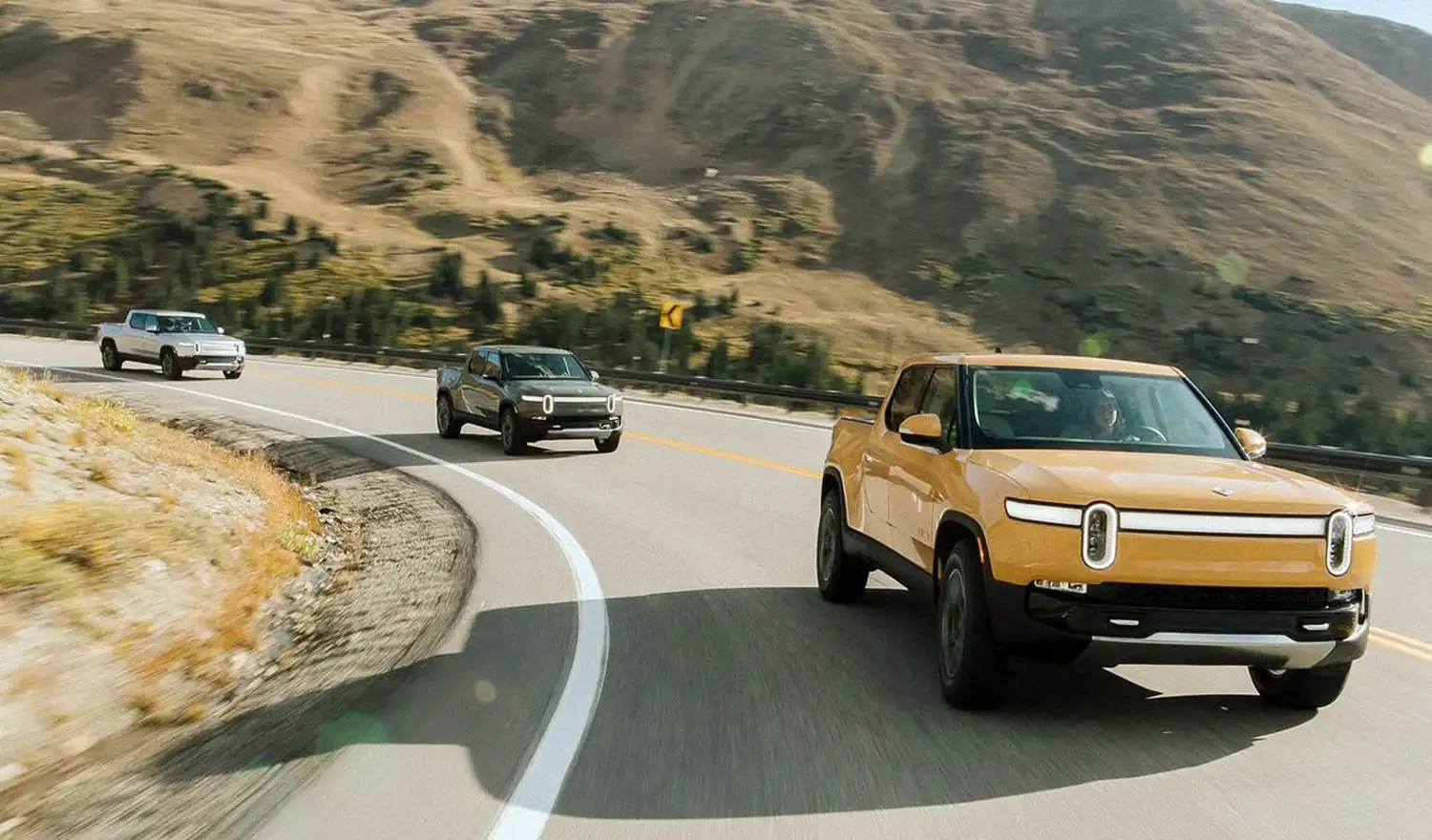
Rivian’s vehicles also feature a quad-motor system that delivers more than 800 hp and more than 900 ft-lbs of torque available with precise torque control to each wheel, enabling active torque vectoring and maximum performance in every situation, from high-speed cornering to low-speed rock crawling. Powering the front axle is a compact 415 horsepower unit with 413 ft lbs. of torque. In the rear, a higher torque derivative delivers 420 horsepower and 495 ft lbs. of torque. The R1T and R1S can both reach 60 mph in 3 seconds and 100 mph in less than 7 seconds. This powertrain and chassis also enable the R1T’s tow rating of 11,000 pounds.
“The beauty and elegance of our quad-motor setup isn’t just about brute power; this architecture provides instantaneous torque with extremely precise control at each wheel, which is completely game-changing from a dynamics perspective, both on- and off-road,” said Executive Director of Engineering and Programs Mark Vinnels.
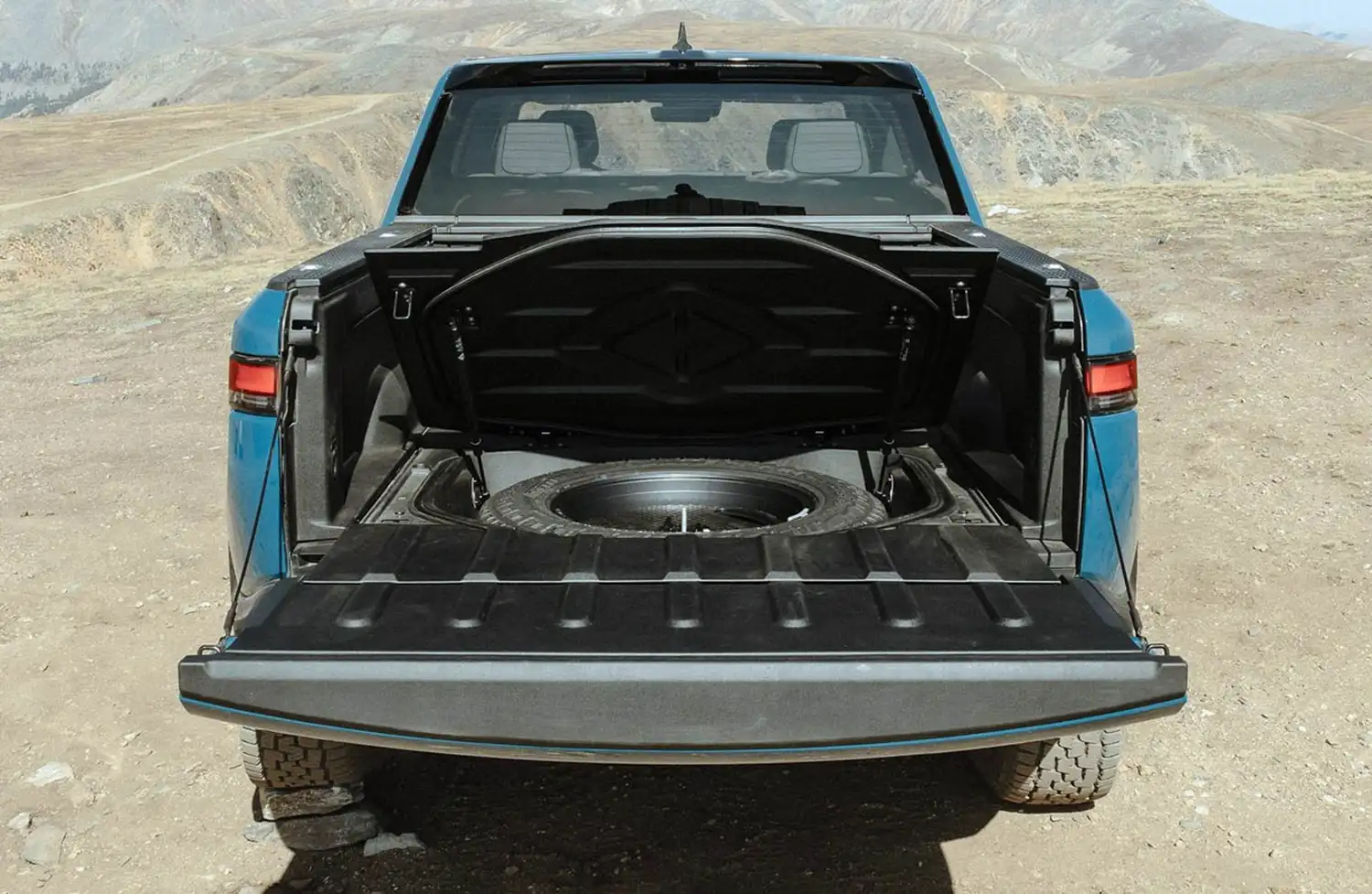
Exterior Design
The R1T and R1S designs communicate strength and refinement while still inviting customers to get the vehicles dirty. Strong proportions and clean, continuous bodylines help achieve a modern, inviting stance while acknowledging the performance and level of technology integrated into the vehicles.
The main bodyline of the Rivian R1T, which wraps up and around the cab and gives the vehicle a distinctive silhouette, while highlighting the Gear Tunnel™ cutline and accentuating the rear fender flares. The Rivian R1S shares much of its appearance with the R1T but in the rear highlights a function-driven design expressing capability and utility with plenty of space for occupants and gear. Both vehicles feature short overhangs, high ground clearance and aggressive approach and departure angles for a confident and rugged stance, all enabled by Rivian’s unique skateboard platform. A Rivian will be quickly recognized, with its iconic, signature “stadium” headlights and a daytime running light that extends the entire width of the vehicle.
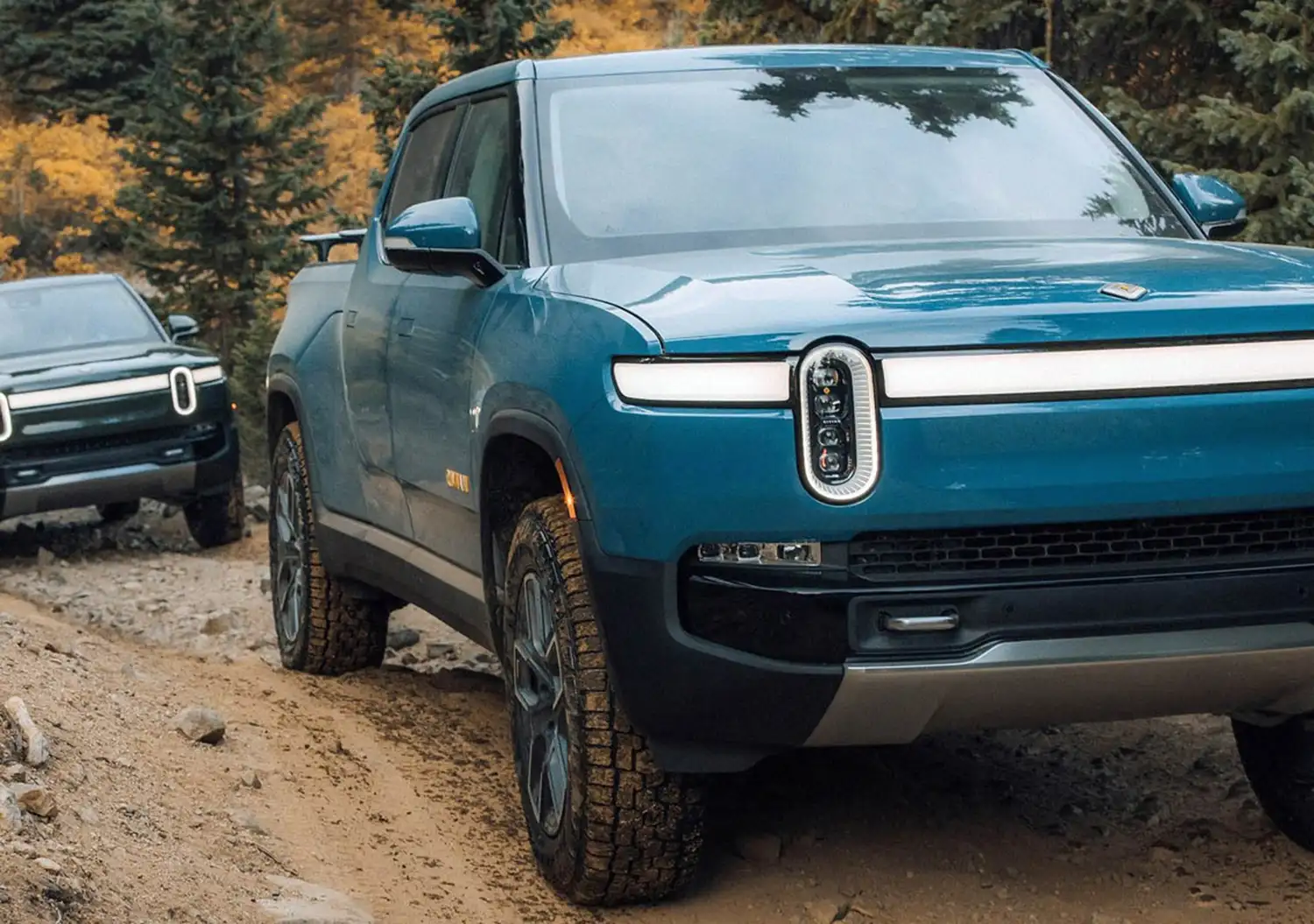
Interior Design
In harmony with the exterior, the interior of Rivian’s vehicles welcomes occupants into a premium environment that conveys craftsmanship yet invites rugged, daily use. Color and materials play an important role in differentiating Rivian vehicles. Sustainably sourced wood is used throughout the interior and its natural finish contributes to a warm and inviting feel. The most striking use of wood is as a structural element that integrates the main center display and driver cluster, integrating form and function beautifully. In the high-wear areas of the interior, the materials take inspiration from sportswear and active gear, combining durable and innovative materials that can easily be cleaned.
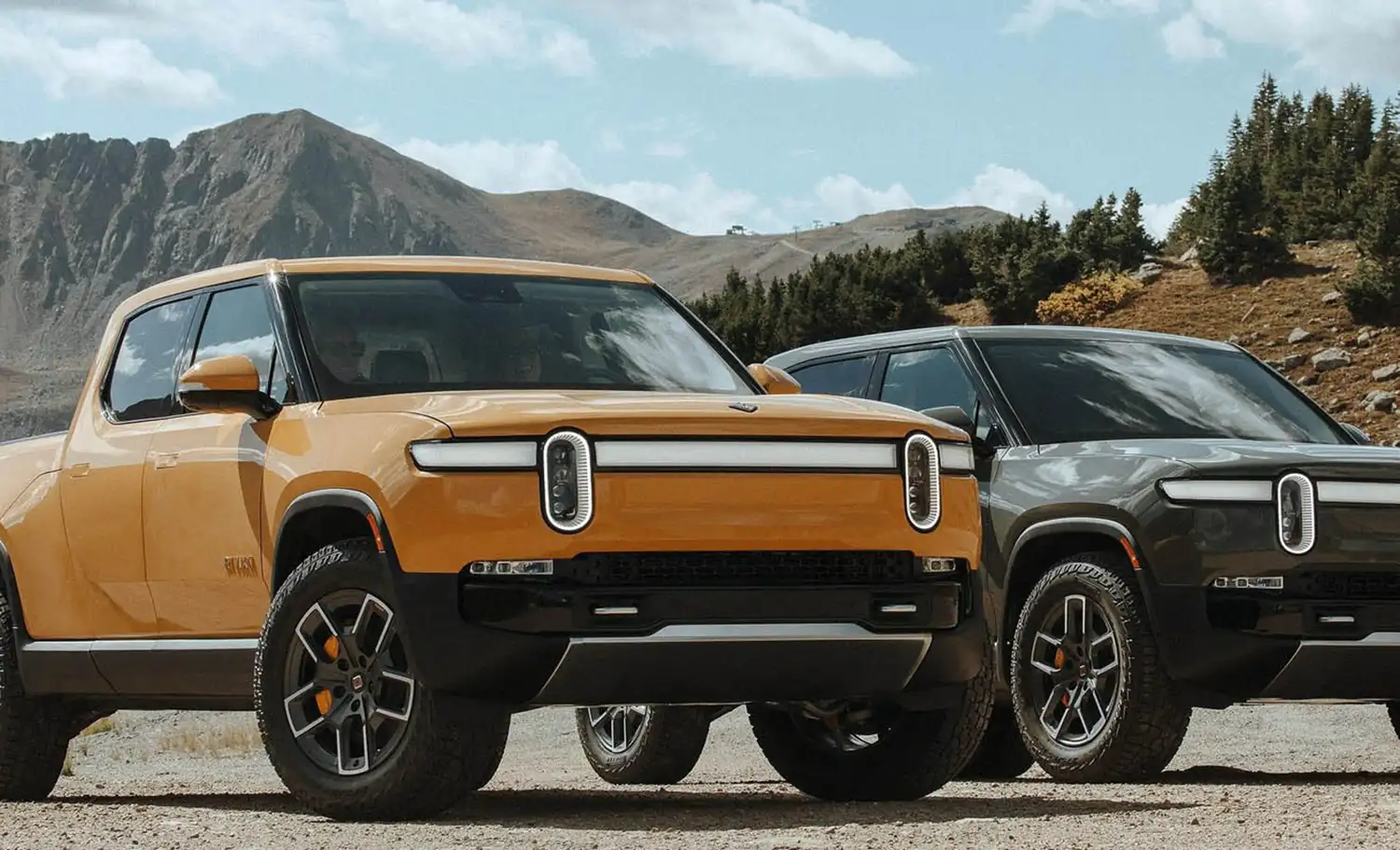
“Although the exterior of the vehicle is what first attracts you, the interior is where you spend the most of your time, so we really focused on creating a transformational space inside our vehicles,” said VP of Vehicle Design Jeff Hammoud. “The biggest challenge was creating an interior design that delivered a premium experience, while still being comfortable as a space that is heavily used. To do this, we looked outside the automotive industry and took inspiration from contemporary furniture, as well as hiking and outdoor gear, to drive the design.”
Utility
The R1S and R1T leverage the vehicle architecture to deliver more lockable storage than any other vehicle in their respective segments. The 330-liter front trunk on the R1T and R1S is easily accessed for daily use with the hood fully powered for opening and closing.
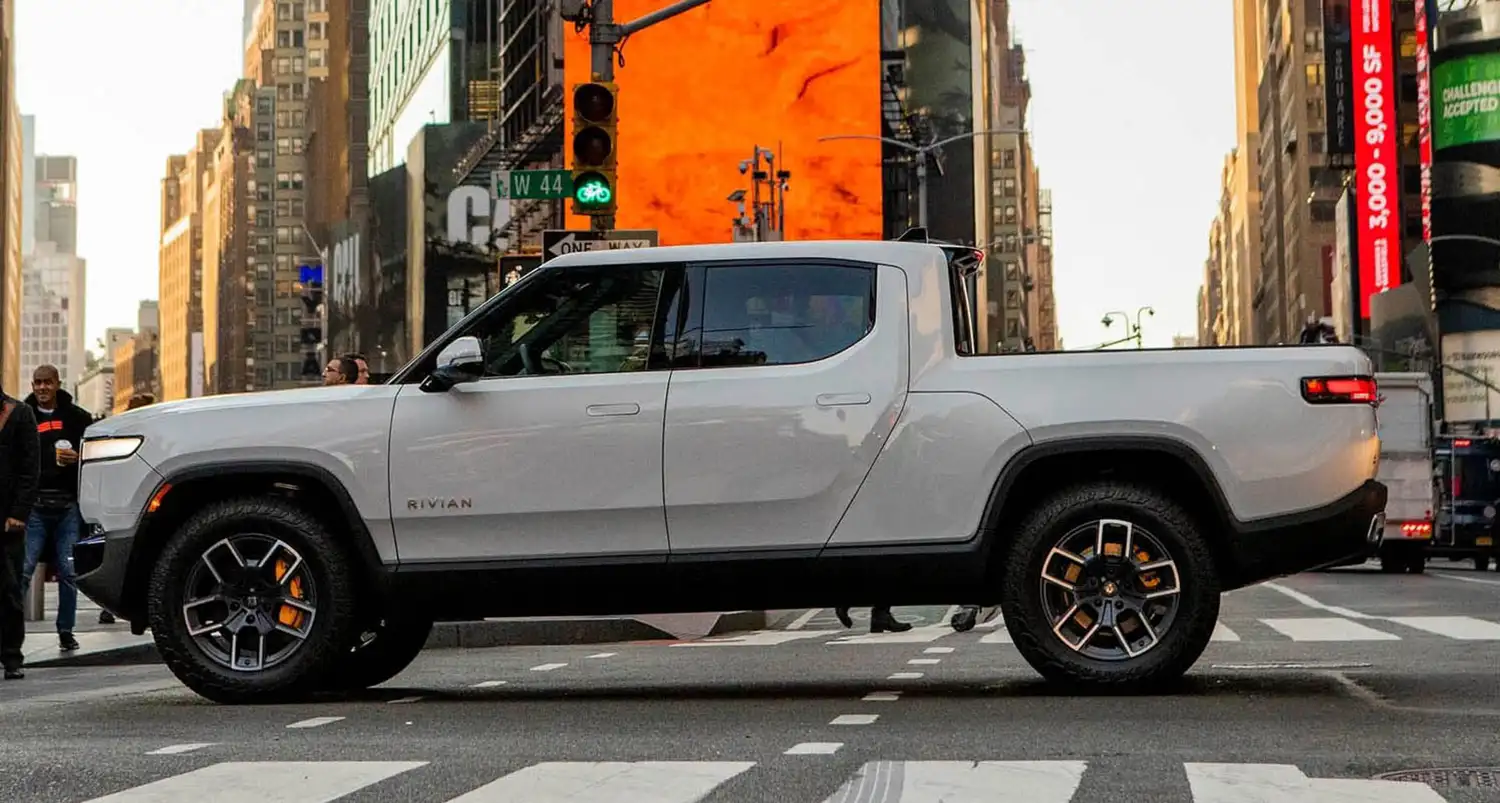
The Rivian R1T’s lockable Gear Tunnel aft of the cab extends across the vehicle and provides more than 350 liters of space for hauling oversized gear, such as snowboards, golf bags or strollers. The Gear Tunnel doors also act as steps for loading items into the bed or onto the roof, as well as a seat for such as lacing up hiking boots. The R1T has a watertight, integrated tonneau cover for the bed and beneath the bed floor is a 200-liter sealed bin that can also be used to store a full-size spare tire. The bed features three 110-volt outlets and integrated compressed air.
As part of a Gear Guard feature, the bed also has two integrated locking cables to safely secure bicycle frames and other gear to the bed. Any gear stored in the bed is monitored by a bed camera and alerts owners should the bed or contents be tampered with.
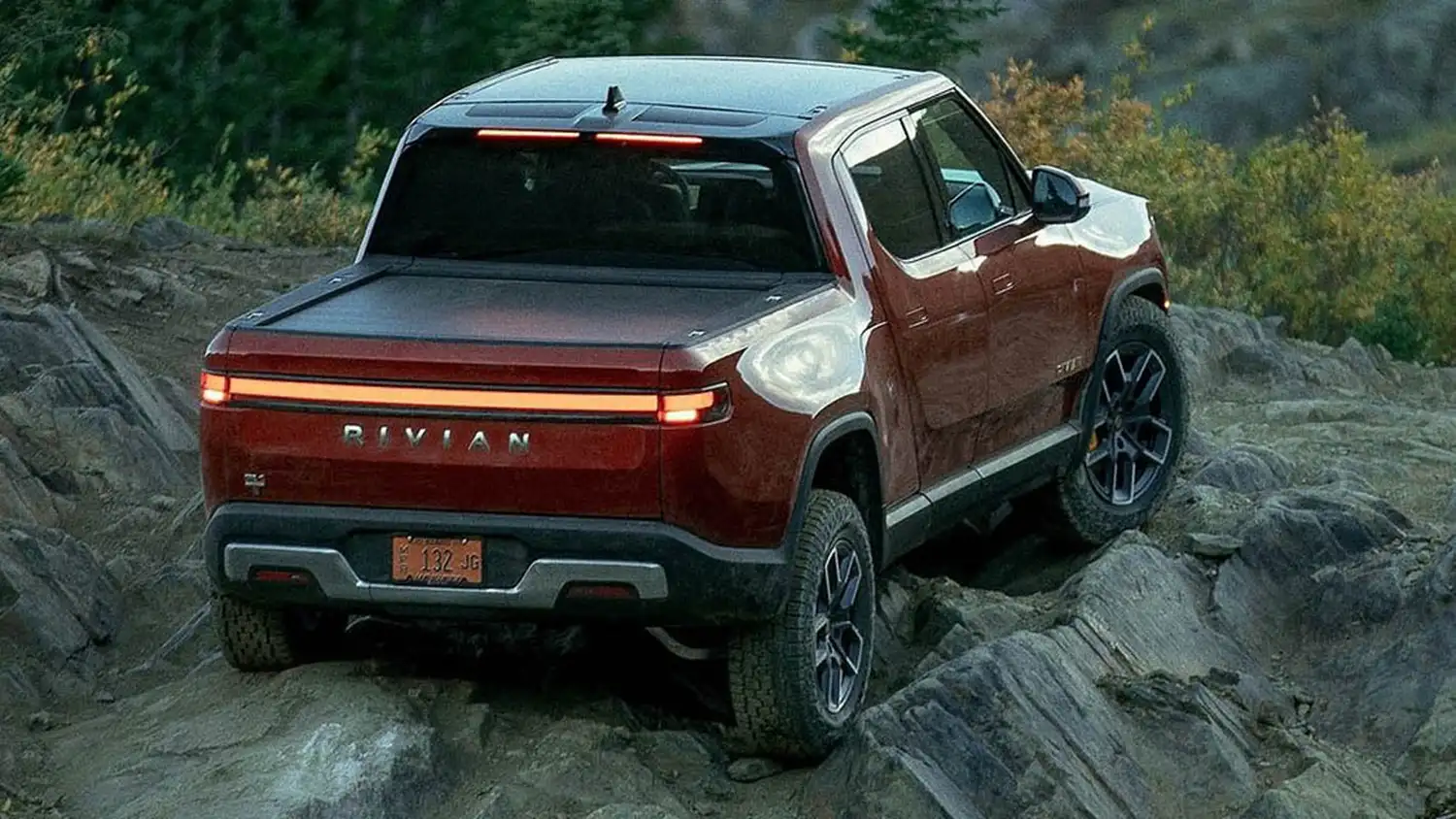
The rear of the R1S features a liftgate and small tailgate, with the tailgate providing an area to sit and prep for activities such as gearing up for a mountain climb to tightening skis. The second and third row seats fold flat to provide room for any gear required.
Rivian has developed a racking system that utilizes telescoping racks with easy-to-use mounts that quickly attach to the roof of either the R1T or R1S, as well as the bed rails and bed floor of the R1T. The racks integrate with a range of accessories including tents, travel containers and bike/ski racks. When not in use, the racks can be easily stored in the front trunk.
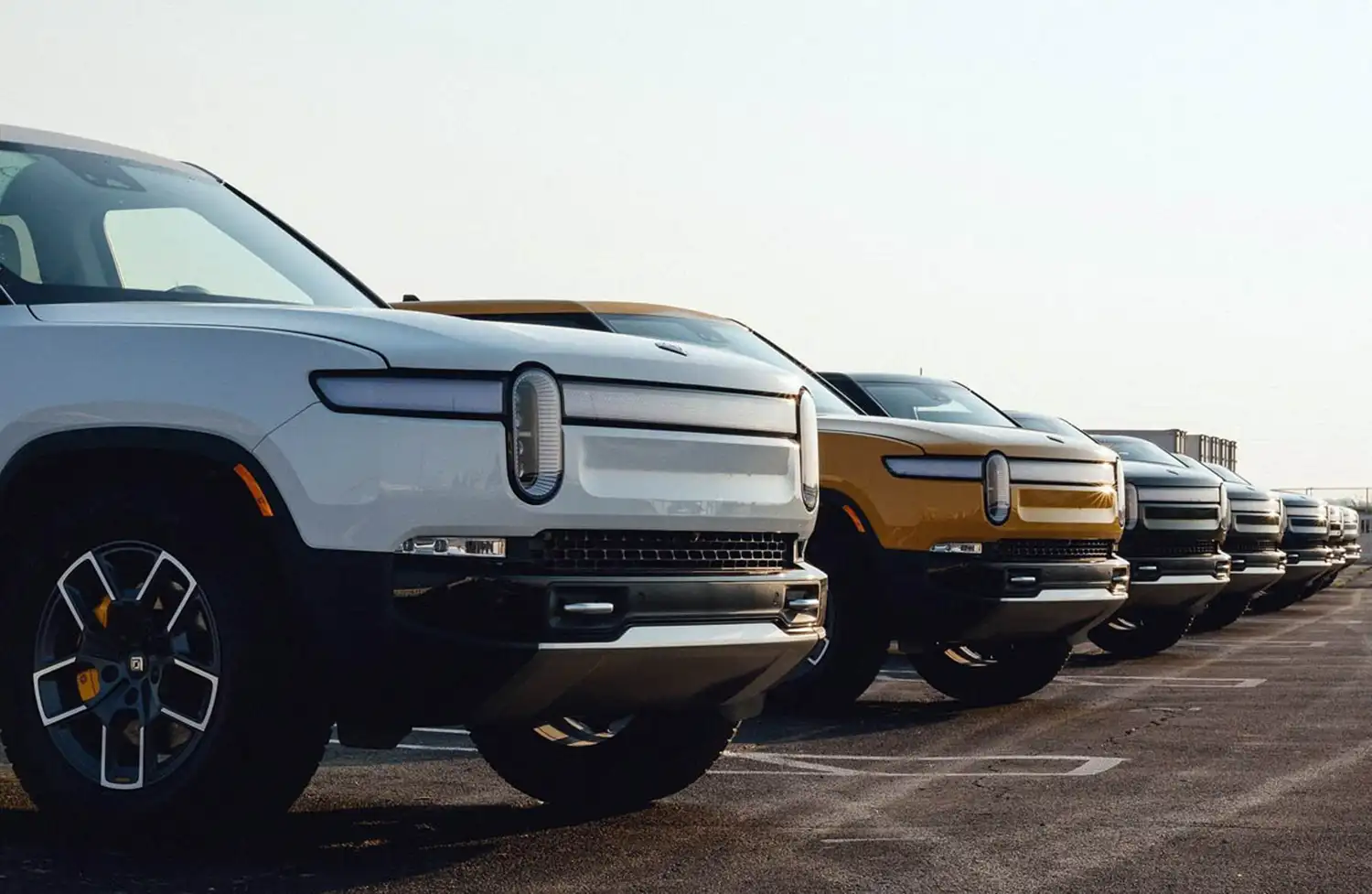
Battery System
Rivian’s energy-dense battery module and pack were developed with the most demanding journeys in mind – incorporating tough underbody protection and an advanced cooling system to give occupants the confidence to go further, regardless of terrain or temperature. Adaptive control algorithms learn driver behavior, optimizing user-specific battery management for maximizing battery life, reliability and second-life reusability. Three battery sizes are planned, with the 180 kWh and 135 kWh available at launch and a 105 kWh being made available within six months.
The battery is designed for fast charging with charging rates of up to 160kW. This enables approximately 200 miles of range to be added in 30 minutes of charging. In addition to DC fast-charging, an 11kW onboard charger facilitates rapid charging at a Level 2 charger.
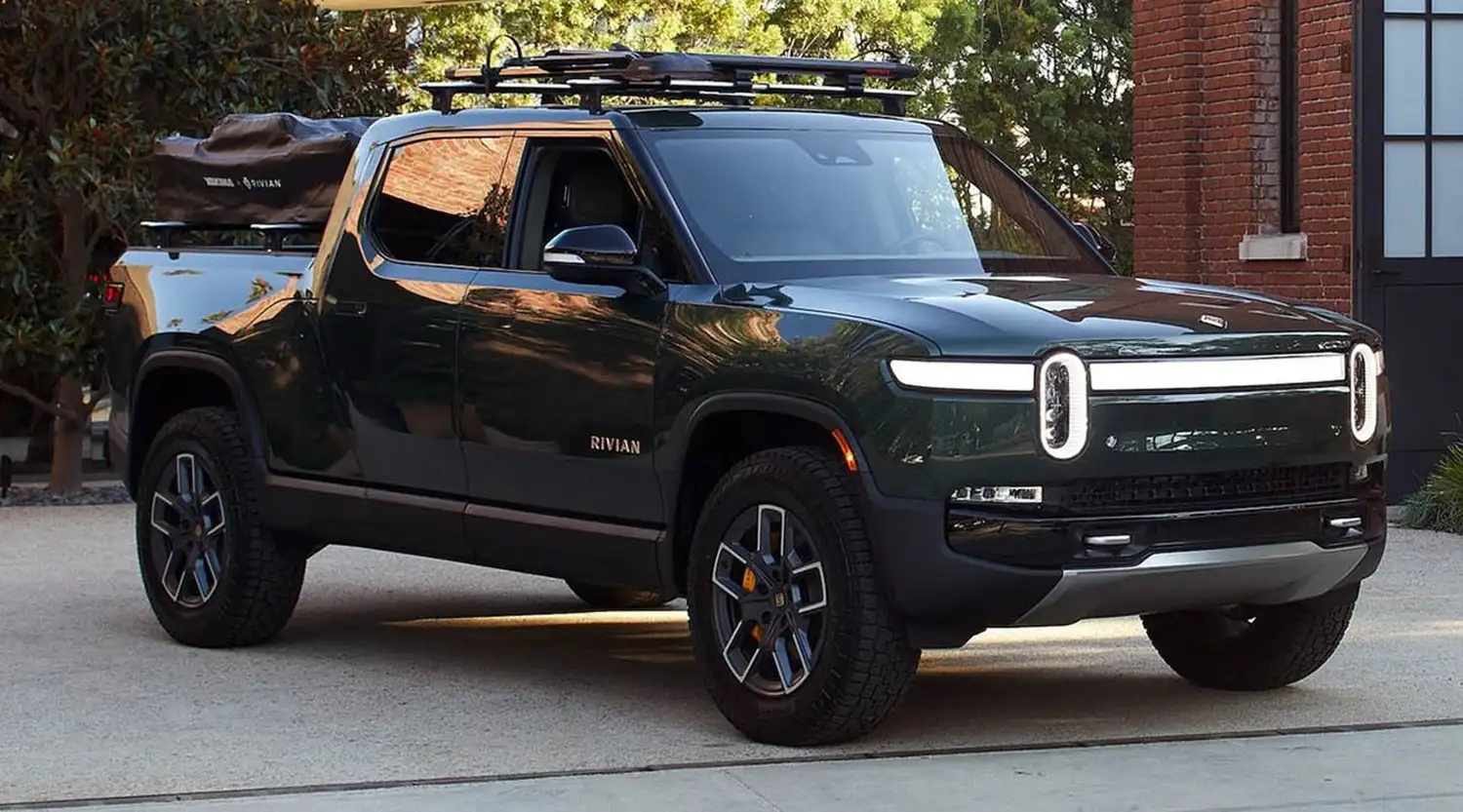
Connectivity and Digital Experience
Rivian has developed its connected car platform from a clean sheet to allow full control and flexibility over the vehicle hardware, software and user experience. The system operates on a high-speed Ethernet backbone that enables robust security. This platform supports granular over-the-air updates of vehicle software to enhance functionality and improve performance. All Rivian vehicles connect to a cloud-ecosystem for data exchange and processing, enabling machine learning and data services. The digital experience extends beyond the vehicle into the cloud ecosystem and mobile/web applications and provides a consistent and seamless interface for vehicle status and control. The in-vehicle experience consists of a custom 15.6-inch center touch screen, 12.3-inch instrument cluster and a 6.8-inch rear touch screen. Understanding its customers desire for connected adventure, Rivian developed maps, music, navigation and other adventure-focused features to complete the digital experience. The digital user interface strongly reflects adventure, outdoors and exploration – the experience is immersive and natural whether it’s being used in a connected urban setting or well off the beaten path.
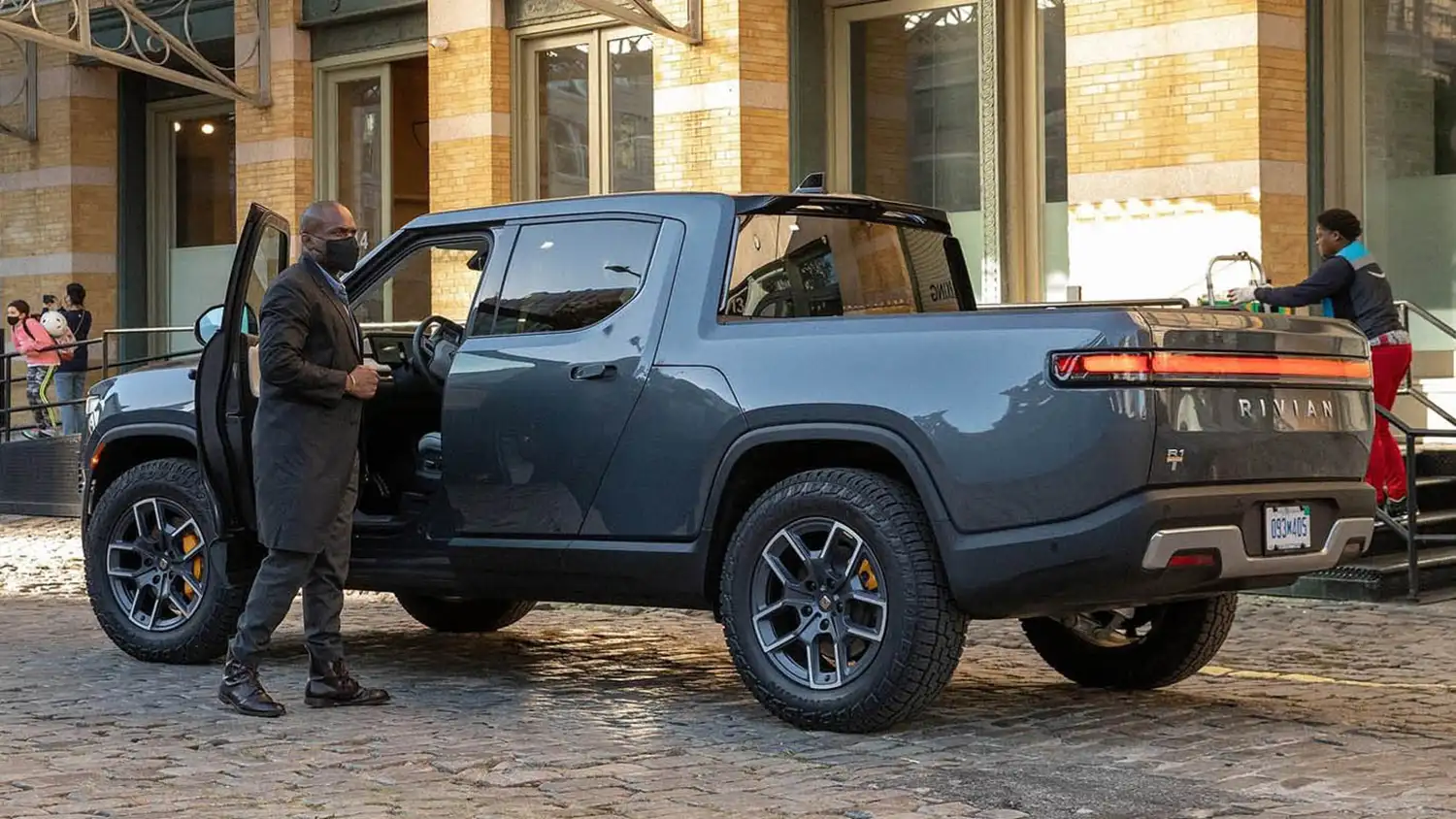
Self-Driving
The R1T and R1S will launch with a robust hardware suite with multiple modalities including camera, lidar, radar, ultrasonic and a high precision GPS coupled with high definition maps. This hardware enables “Level 3” (hands-off wheel and eyes off road) autonomy for highway operation. Beyond the highway Level 3, the vehicle will have a range of self-driving features focused on enabling active lifestyles.
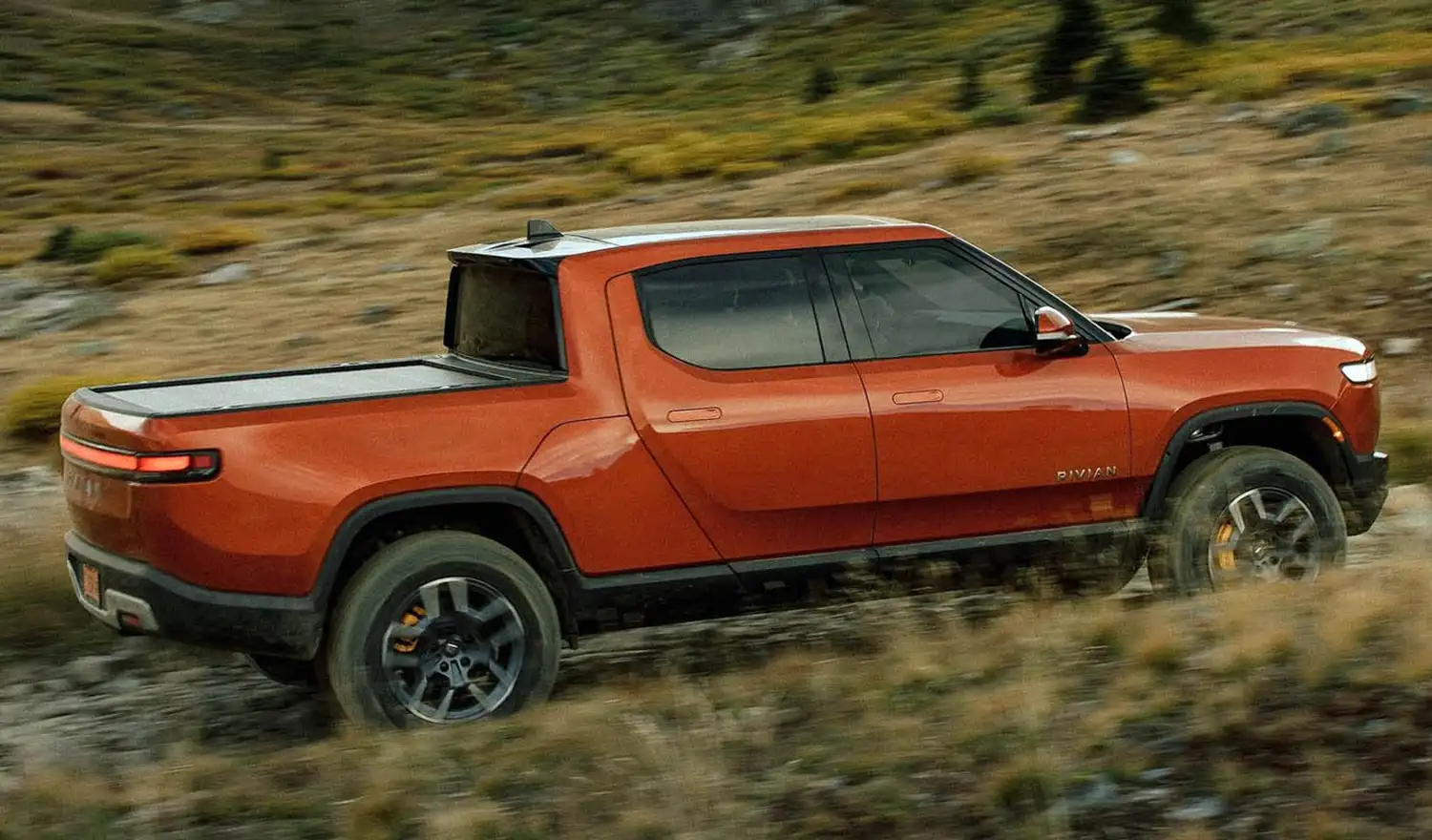
Safety
Rivian’s safety systems and body-structure design will deliver IIHS Top Safety Pick Plus and NHTSA 5-Star ratings. Safety features include 8 airbags for occupant protection and reinforcements of the skateboard platform to protect the battery. The R1T and R1S will also be offered with a full complement of active safety systems enabled by Rivian’s suite of self-driving sensors.
